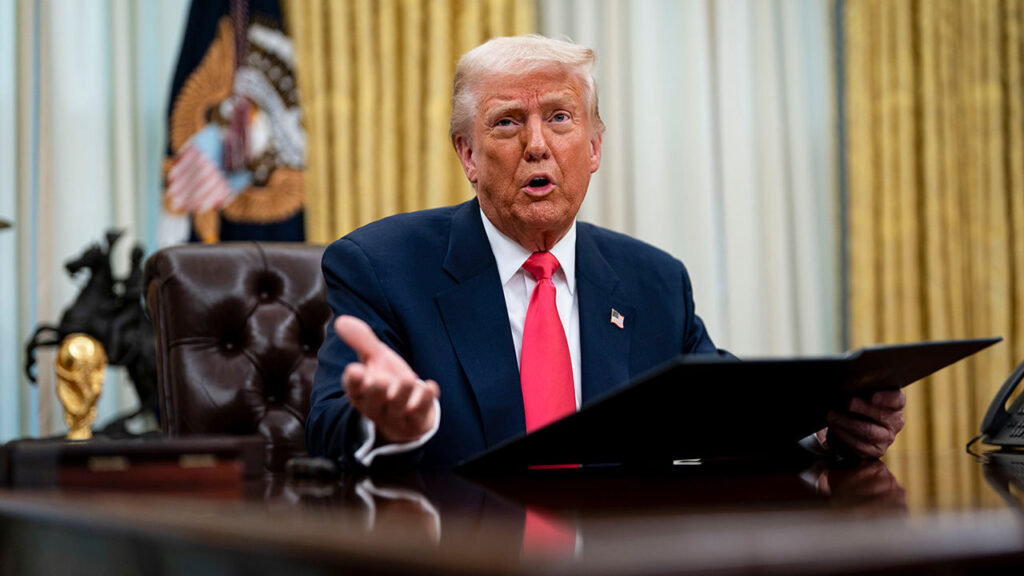The dynamics of American foreign policy have seen significant shifts over the past three decades, particularly with decisions that can turn centuries-old alliances and approaches on their heads. In this context, recent alterations in the stance toward various geopolitical landscapes have stirred debates among scholars, policymakers, and the public at large. The perspectives surrounding these changes reveal a complex interplay between national interests and international relations, illustrating that the process of overturning longstanding policies is often fraught with challenges.
To begin with, the historical context outlines how deeply entrenched policies often dictate the rhythm of diplomacy. For example, the post-World War II era saw the United States adopting a clear stance toward containment—predominantly against the Soviet threat, which shaped relationships with countries in Europe and Asia. As time progressed, successive administrations maintained a steady commitment to these firm policies, prioritizing stability over flexibility. This created a sort of inertia in American foreign relations that can be difficult to disrupt. Overturning such historical frameworks, therefore, raises immediate questions about implications for both allies and adversaries.
When policies are reconsidered, every shift requires a comprehensive understanding of how domestic influences intertwine with international ramifications. Take, for instance, the recent pivot away from decades-long support for certain regimes or opposition to the dictatorial hold in various regions. The decision to recalibrate relationships with countries like Saudi Arabia or Venezuela has not been without backlash. Critics argue that these shifts may embolden authoritarian leaders and undermine human rights globally. Conversely, proponents argue that re-engaging with difficult regimes could foster dialogue and lead to positive change. As these discussions unfold, the difficulty of striking an effective balance becomes apparent—one that weighs moral imperatives against strategic interests.
Moreover, the economic dimensions of policy change often present hefty challenges. Decisions rooted in trade agreements, tariffs, or sanctions can have ripple effects across global markets. For example, when the U.S. opted to withdraw from various trade pacts or imposed stricter tariffs, it not only affected bilateral relationships but also caused significant disturbances in international supply chains and market stability. Industries reliant on global trade were left to navigate fluctuating economic realities, often resulting in immediate losses alongside long-term uncertainties. This economic calculus highlights the messy fallout that any alteration in policy can elicit, revealing the interconnectedness of national economies in today’s world.
Another layer of complexity arises from public opinion and political will. Democratic governance implies that elected officials must remain attuned to the sentiments of their constituents. As policymakers consider shifts in foreign policy, they must navigate a landscape often shaped by partisan divisions and competing narratives. In recent years, issues such as immigration, climate change, and healthcare have simultaneously risen to the forefront of American discourse, frequently overshadowing foreign policy debates. This shifting focus complicates foreign-policy objectives, necessitating that leaders communicate effectively the rationale and benefits of any major transformation in approach. Misalignment between national interest and public sentiment can breed dissent, leading to more significant challenges in actualizing proposed changes.
Ultimately, the overarching lesson is that while the process of overturning three decades of established American policy may be motivated by a desire for progress or pragmatism, it is laden with multifaceted hurdles. The changes must be navigated with careful consideration of both historical context and contemporary realities to avoid unintended consequences that could destabilize relations and foster conflict. Successful transformation will depend on a balanced approach that recognizes the intricacies of diplomacy, engages diverse stakeholder perspectives, and aligns economic strategy with a foundation of public support.
In conclusion, the task of redefining U.S. foreign policy is monumental and the stakes are high. Over the course of history, many have witnessed alterations that were bold yet risky, and as the nation looks to the future, the imperative remains clear: navigating change will not be painless, but with diligence, the potential for positive outcomes does exist. Adapting American policies will necessitate a well-calibrated strategy that embraces complexity while aspiring toward clarity and coherence in purpose.



